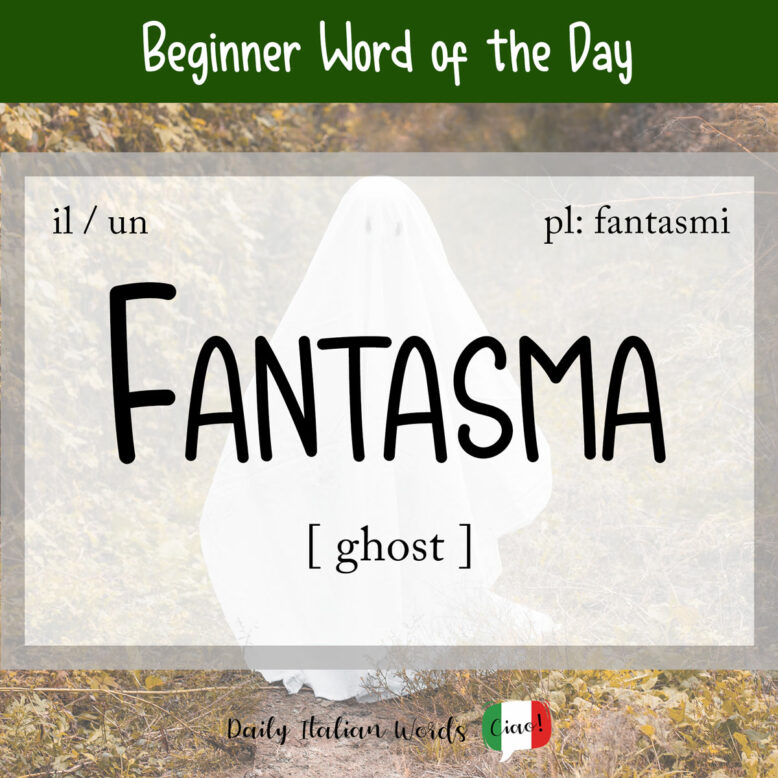Today’s ‘word of the day’ is part of our Italian Halloween Word series. On the days leading up to Halloween, we’ll post a word that is related to this spooky time of year. Enjoy! 🦇
The word for ghost is fantasma in Italian. It should be easy to remember as it shares the same origin as the word phantom in English, which is the Greek word phantasma.

Despite ending in the letter ‘a‘, fantasma is actually a masculine noun. In its plural form, it takes the masculine ending ‘i‘ (fantasmi).
C’è un fantasma che si aggira per la casa tutte le notti.
There is a ghost that roams the house every night.

When used as an adjective, it follows the same gender and plurality rules as the noun. In other words, masculine and feminine singular nouns are always with fantasma (never fantasmo) and plural nouns with fantasmi (never fantasme). In this sense, it may denote a person or thing that lacks authority or whose identity may be unknown such as:
- governo fantasma = a government that acts in hiding and is not officially recognised
- re fantasma = a king that is devoid of actual authority and power
Two terms that Italian has borrowed from English are città fantasma (ghost town) and scrittore fantasma (ghost writer).

Roma è diventata una città fantasma per colpa del virus.
Rome has become ghost town due to the virus.
Another expression English speakers will recognise is essere / diventare il fantasma di sé stesso, which means to be / becomes a shadow of one’s former self.
If you say that someone looks like a ghost (sembrare / parere un fantasma), you would be suggesting that he or she has a pale and gaunt appearance.
Fantasma may also refer to an image created by the mind, or an illusion created by the distortion of the senses. For example i fantasmi della sua mente = the illusions of his mind. Italian philosopher, poet, essayist, and philologist Giacomo Leopardi uses the word in this sense in his book Operette morali:
“Avranno tuttavia qualche mediocre conforto da quel fantasma che essi chiamano Amore; il quale io sono disposto, rimovendo tutti gli altri, lasciare nel consorzio umano.“
“However, men will draw some minor comfort from the idol they call Love, whom I am willing to leave among them after removing all other idols.”
Heather Broster is a graduate with honours in linguistics from the University of Western Ontario. She is an aspiring polyglot, proficient in English and Italian, as well as Japanese, Welsh, and French to varying degrees of fluency. Originally from Toronto, Heather has resided in various countries, notably Italy for a period of six years. Her primary focus lies in the fields of language acquisition, education, and bilingual instruction.


